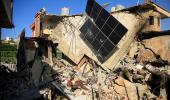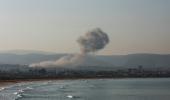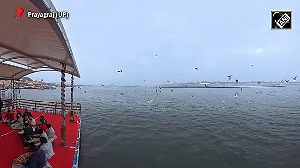In a significant blow to Hezbollah, the Israeli Defence Forces (IDF) announced the elimination of Muhammad Hussein Srour, Commander of the organisation's Aerial Command, in a precision airstrike in Beirut.

Sharing a post on X, the IDF wrote, "Eliminated: Commander of Hezbollah's Aerial Command, Muhammad Hussein Srour, in a precise IAF strike in Beirut."
The IDF further said that Srour was responsible for advancing numerous aerial terrorist attacks targeting Israeli civilians.
"Srour advanced and directed numerous aerial terrorist attacks aimed at Israeli civilians. During the "Iron Swords" war, he executed several terrorist attacks against Israeli civilians and IDF soldiers using UAVs and explosive devices," the post said.
"In recent years, Srour led the manufacturing project of UAVs in southern Lebanon and established UAV manufacturing and intelligence gathering sites in Lebanon, located adjacent to civilian infrastructure in Beirut and southern Lebanon," the post added.
The IDF also said that Srour's role extended to the commander of the surface-to-air missile unit, as well as the "Aziz" Unit of the Radwan Force. It said, "He was also the commander in the surface-to-air missile unit, commander in the "Aziz" Unit of the Radwan Force and Hezbollah's emissary to Yemen and the Houthi terrorist regime's Aerial Command."
Meanwhile, amid the escalating tensions between Israel and Lebanon, the United States has called for a 21 day ceasefire on the Israel-Lebanon border to prevent an escalation of war and give diplomacy a chance there and in Gaza.
Voicing their support for this plan are US Secretary of Defence Lloyd J Austin III, British Defence Secretary John Healey, and Australian Defence Minister Richard Marles, who met in London on Thursday at the AUKUS defense ministerial meeting, the Pentagon said in a press release.
"The situation in Lebanon and northern Israel is deeply troubling. Lebanese Hezbollah, an Iranian-backed terrorist group, began firing rockets into Israel in an unprovoked attack the day after the October 7, 2023, terrorist assault by Hamas, Austin said.
"Hezbollah has not stopped since. Like any other state, Israel has a right to defend itself. And almost a year later, tens of thousands of Israeli and Lebanese civilians still cannot safely return home, and we now face the risk of an all-out war, another full-scale war, which could be devastating for both Israel and Lebanon, he added.
Austin further said that despite the sharp escalation in recent days, a diplomatic solution is still viable. "A diplomatic solution, not a military solution, is the only way to ensure that displaced civilians on both sides of the border can finally go back home," he said.
Calling for an immediate ceasefire, Austin said, "An immediate 21-day ceasefire will provide time for the diplomacy needed to achieve a durable arrangement that will allow Israeli and Lebanese civilians to return safely to their homes. This time can also be used to conclude and implement a deal to secure a cease-fire in Gaza and to bring all of the hostages home."











 © 2025
© 2025